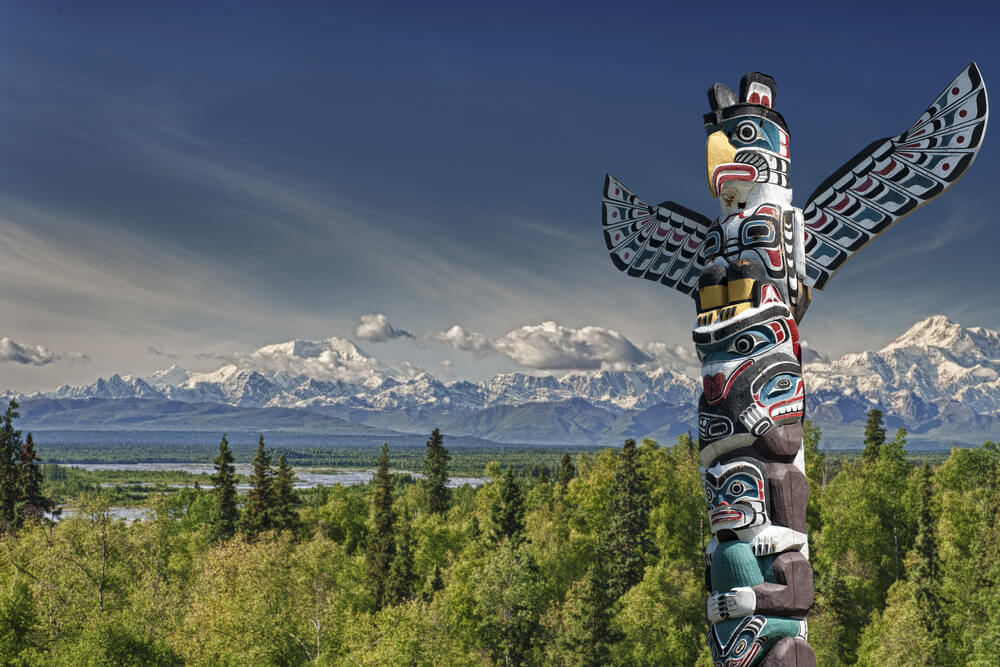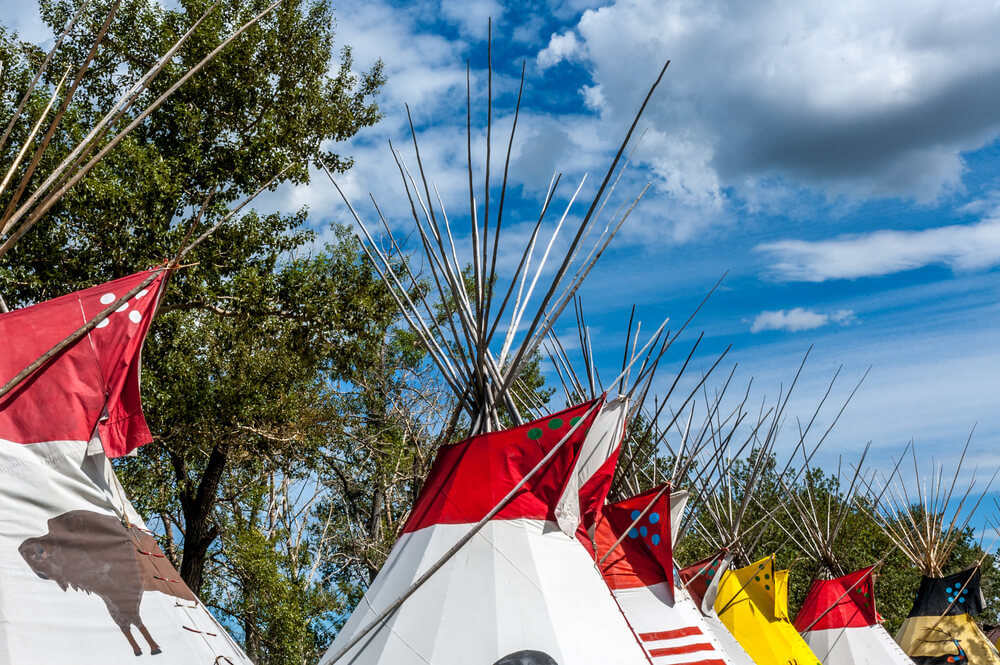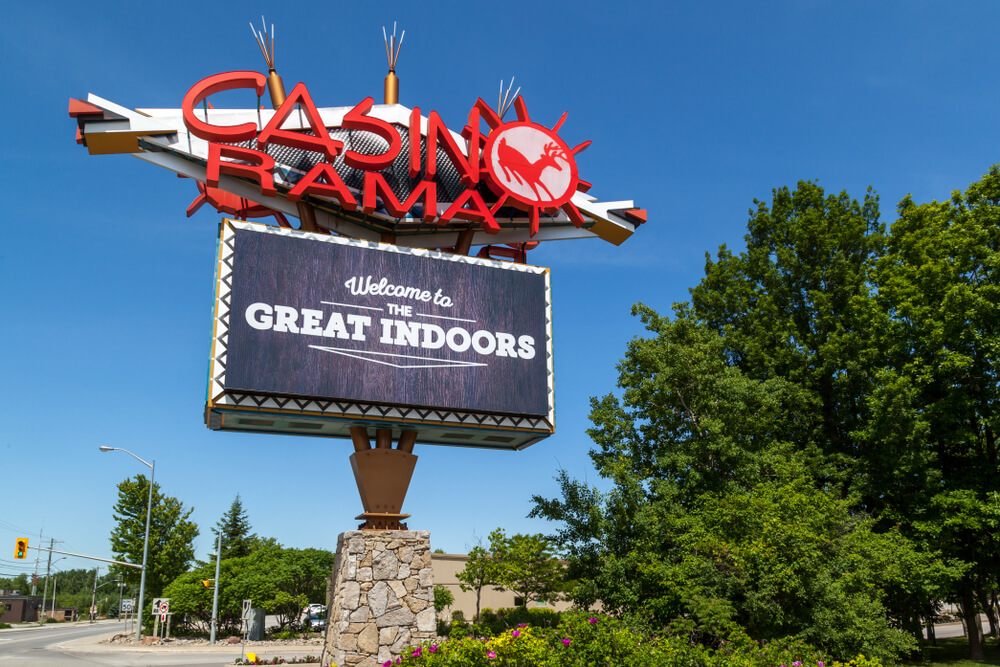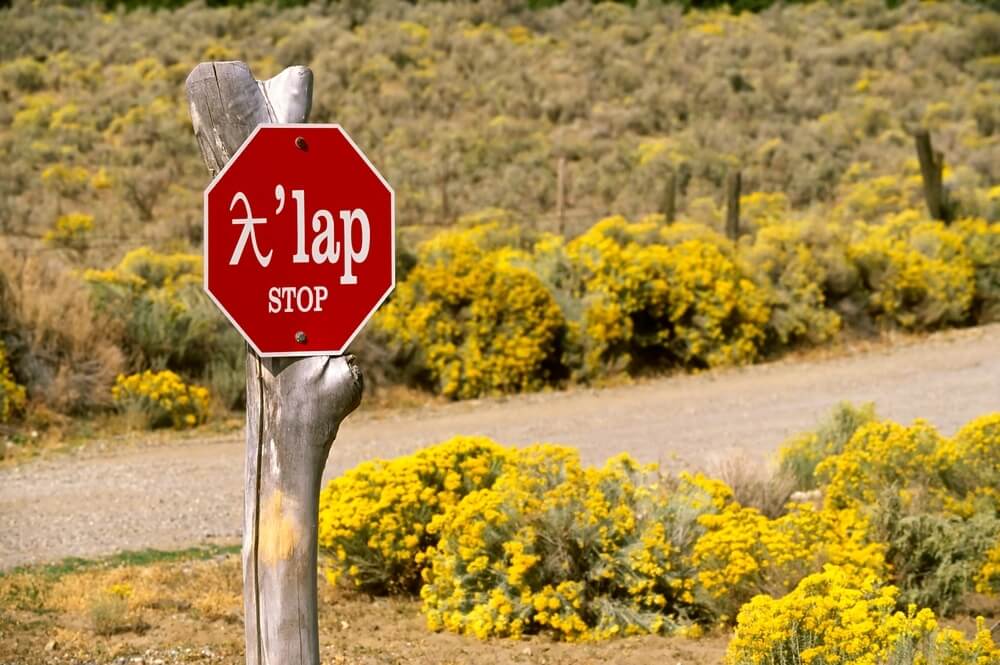Unraveling the Narrative of Gambling Among Canada's Indigenous Peoples

Welcome to our extensive exploration, where we delve into every aspect of Indigenous gambling in Canada. We've chronicled the journey from the earliest games of chance played by First Nations peoples to the legal challenges faced today. Discover also some of the finest Indigenous casinos in Canada you can visit today.
Table of Contents
- Tracing the Meandering Legacy of First Nations Gambling
- From Sticks to Stones: Traditional Indigenous Games of Chance
- Legal Complications
- First Nations Gambling Today
- The Kahnawà:ke Gaming Commission
- Land-Based First Nations Casinos
- Find Top Online Casinos in Canada
Tracing the Meandering Legacy of First Nations Gambling
The roots of gambling in Canada extend well beyond the country's founding in 1867. Long before European settlers arrived, games of chance were played with sticks and stones by Indigenous peoples.
The landscape changed dramatically when European settlers imposed laws that banned all gambling for a time. You can explore this Canadian gambling history in detail, but here’s a brief timeline of First Nations gambling from 1497 to the present:
- Pre-1497 – Before European settlers, Indigenous communities in Canada engaged in games of chance using sticks and stones, as well as betting on social event races.
- 1497 – John Cabot charted Canadian territory and documented Indigenous gambling activities. Subsequently, his claim of Newfoundland as English territory brought the 1338 English Law, banning most forms of gambling.
- 1892 – A quarter-century post-Canada’s confederation, the Criminal Code was established to bar all forms of First Nations gambling. However, amendments soon allowed federally regulated gambling like horse race betting.
- 1982 – An amendment to Criminal Code Sec 207 permitted provinces to regulate gambling, but excluded First Nations territories.
- 1995 – Though initial attempts to challenge Sec 207 failed, they paved the way for the First Nations Gaming Act in 1995 and the inception of the Kahnawake Gaming Commission in 1996.
- 2014 – An ABA study highlighted the significant economic impact of the First Nations gambling industry, estimated at over $1 billion with fewer than 20 casinos.
- 2023 – If ratified, Bill S-268 will allow First Nations to oversee and license gaming on their lands.
From Sticks to Stones: Traditional Indigenous Games of Chance

Below is a concise guide to four prevalent First Nations gambling games:
| Game | Origin | Materials | Summary |
|---|---|---|---|
Slahal (or Lahal) |
Indigenous Cultures of the Pacific Northwest Coast |
Typically using four bones, often deer shin bones or bones of similar size. 10 sticks |
Each team holds 10 sticks for scoring purposes. Bones are split into two pairs, marked as striped or unstriped. One team manages both pairs. While singing, the team juggles the bones, and the opposing team guesses the location of the unstriped bones. |
Ahkitaskoomnahmahtowinah – The Game of Counting Sticks |
Muskowpetung First Nation in Qu’appelle Saskatchewan, Plains Cree |
25 willow splints |
Two teams of players face each other. A player makes two concealed bundles with sticks. Choosing the bundle with an even number signifies a win. |
Chekutnak – Stick Dice |
Plains Cree (Piapot First Nation) |
Four 12-inch “dice” sticks. 10 medium 'tally' sticks, each worth a point. 4 smaller sticks, each representing 10 points. |
Scores are determined by how the four 'dice' sticks land when tossed. Players gather score points via ‘tally’ sticks from their competitors. A throw is given if a player depletes their tally sticks, to remain in the game. |
Stick Flip |
Plains Cree |
An 18-inch long pole with uniquely painted sides is used. Tally stick to keep score |
Players flip the stick by stepping on one end; scores are determined by its landing position. ● Blank – 1 points ● Marked – 2 points ● Blue – 3 points ● Red – 4 points (wins the game) |
Indigenous gamblers wagered food and clothing alongside currency.
Legal Complications
Legal battles over the years have complicated First Nations gambling in Canada. Sec 207 of the Criminal Code empowers provinces to legislate gambling, allowing them to profit from it.
First Nations have repeatedly challenged provincial authorities, leading to limited victories. Notably, Indigenous casinos in Alberta marked the beginning of Indigenous casino authorization in Canada.
Although many suits failed, they collectively led to significant strides, including the 1995 First Nations Gaming Act enabling First Nations to shape their gaming institutions in Canada.
In disputes between First Nations and Canada over gambling, Aboriginal rights are frequently highlighted. For instance, in 1985, Eagle Lake First Nation proposed legalizing gaming on its Ontario lands, but the Ontario Lottery Commission insisted on licensing, which Eagle Lake contested due to self-governing rights.
First Nations Gambling Today

Currently, Canada hosts 18 Indigenous casinos and a First Nations’ online gaming industry regulated by the Kahnawà:ke Gaming Commission. Three avenues allow Aboriginal communities to initiate legal gambling operations today in Canada:
- Communities can seek a provincial casino license as a charity.
- Agreements can be negotiated with provinces to operate casinos.
- One can obtain a non-charitable gaming license from approved provincial bodies for specific gambling activities.
The Kahnawà:ke Gaming Commission
The Kahnawà:ke Gaming Commission, established in 1995, was Canada's first body for regulating First Nations gambling. It globally pioneered online gaming regulations in 1999, making it one of the oldest such regulators.
Though primarily overseeing three land-based Indigenous casinos within its territory, the Commission has expanded significantly online, licensing over 250 virtual casinos and gaming operations.
The gaming laws of Kahnawake operate independently of Canada, empowering the Commission to enact its own online gambling regulations without challenge from Canadian authorities.
Land-Based First Nations Casinos

At Canada's 18 Indigenous casinos, you can indulge in games of chance, bingo, and skill-based games from age 19. To hone your skills before visiting a First Nation land-based casino, it's advised to learn the skill-based casino games using this guide.
Once familiar with the rules of play, just locate the nearest top-tier land-based casino. We've put together crucial details about three prominent First Nation land-based casinos in Canada:
- Grey Eagle Casino – Situated minutes from downtown Calgary, Alberta, Grey Eagle Casino opened in 2007. It boasts over 1,000 slot machines and 40 game tables, including roulette and blackjack. Get additional insights Grey Eagle Casino review about this popular casino here.
- River Cree Resort and Casino – Found in Enoch near Edmonton, Alberta, this casino started in 2006 and now offers 1,350 slots, 40 game tables, and 12 poker rooms.
- Casino Rama – Among Canada’s oldest Indigenous casinos, established in 1996 in Rama, Ontario. Home to over 1,800 slots and table games like poker, roulette, blackjack, and baccarat.
Responsible First Nations Gambling

The 2018 Canadian Community Health Survey (CCHS) data reveals that Indigenous Canadians are three times more prone to suffer from moderate to severe gambling issues.
Responsible gambling initiatives aim to promote enjoyable and sociable gambling experiences while minimizing addiction risks, particularly necessary in the context of First Nations gambling in Canada.
Statistics underline a higher risk of problem gambling within Indigenous groups in Canada, the US, and across the global landscape compared to mainstream populations. Explore the most effective treatment options section in this discussion; here are three main risk indicators:
- Relationship Damage – Gambling problems may harm your ties with friends, family, and loved ones. This could lead to conflicts and cause you to disregard familial duties or push people away.
- Personal health – The psychological toll and emotional distress that comes with problem gambling can be profound, taking a significant hit on your mental well-being. It's not uncommon for anxiety and depression to take root, and this mental strain often manifests physically, interfering with your sleep and putting undue pressure on your cardiovascular system.
- Financial risks – Letting gambling issues spiral out of control poses significant threats to your finances. Mismanaging your betting funds might leave you short on cash for necessities and could land you in substantial debt.
Find Top Online Casinos in Canada
Although we’ve examined some of the best Indigenous brick-and-mortar casinos, the majority of Canadians now turn to online platforms as their main way to engage with gambling games.
We suggest becoming a member and enjoying the games at one of our recommended venues, top recommended online casinos right here at CasinoBonusCA. This path ensures you experience gaming in a secure, regulated environment, where enjoyment and responsibility go hand in hand.